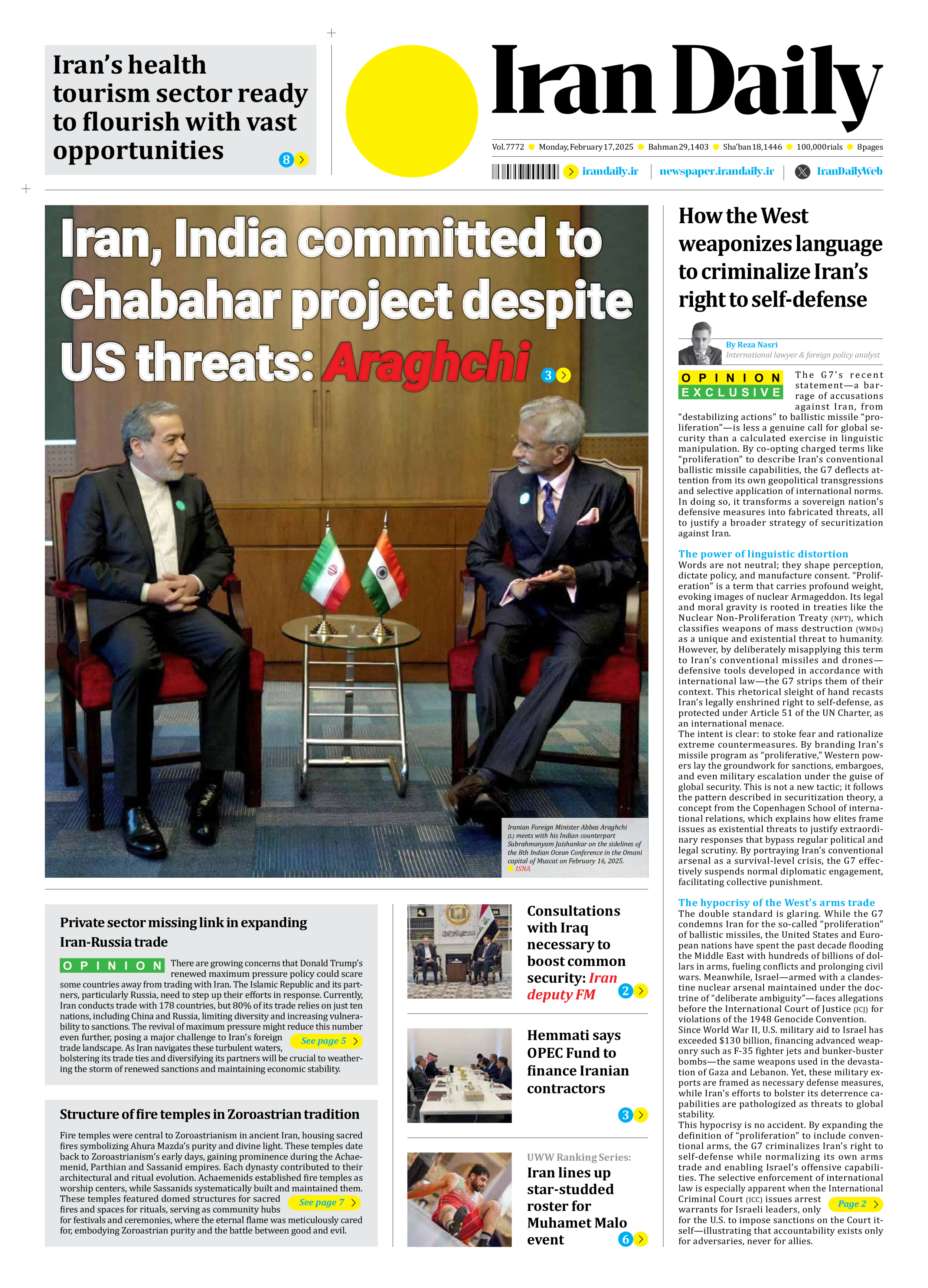
How the West weaponizes language to criminalize Iran’s right to self-defense
By Reza Nasri
International lawyer & foreign policy analyst
The G7’s recent statement—a barrage of accusations against Iran, from “destabilizing actions” to ballistic missile “proliferation”—is less a genuine call for global security than a calculated exercise in linguistic manipulation. By co-opting charged terms like “proliferation” to describe Iran’s conventional ballistic missile capabilities, the G7 deflects attention from its own geopolitical transgressions and selective application of international norms. In doing so, it transforms a sovereign nation’s defensive measures into fabricated threats, all to justify a broader strategy of securitization against Iran.
The power of linguistic distortion
Words are not neutral; they shape perception, dictate policy, and manufacture consent. “Proliferation” is a term that carries profound weight, evoking images of nuclear Armageddon. Its legal and moral gravity is rooted in treaties like the Nuclear Non-Proliferation Treaty (NPT), which classifies weapons of mass destruction (WMDs) as a unique and existential threat to humanity. However, by deliberately misapplying this term to Iran’s conventional missiles and drones—defensive tools developed in accordance with international law—the G7 strips them of their context. This rhetorical sleight of hand recasts Iran’s legally enshrined right to self-defense, as protected under Article 51 of the UN Charter, as an international menace.
The intent is clear: to stoke fear and rationalize extreme countermeasures. By branding Iran’s missile program as “proliferative,” Western powers lay the groundwork for sanctions, embargoes, and even military escalation under the guise of global security. This is not a new tactic; it follows the pattern described in securitization theory, a concept from the Copenhagen School of international relations, which explains how elites frame issues as existential threats to justify extraordinary responses that bypass regular political and legal scrutiny. By portraying Iran’s conventional arsenal as a survival-level crisis, the G7 effectively suspends normal diplomatic engagement, facilitating collective punishment.
The hypocrisy of the West’s arms trade
The double standard is glaring. While the G7 condemns Iran for the so-called “proliferation” of ballistic missiles, the United States and European nations have spent the past decade flooding the Middle East with hundreds of billions of dollars in arms, fueling conflicts and prolonging civil wars. Meanwhile, Israel—armed with a clandestine nuclear arsenal maintained under the doctrine of “deliberate ambiguity”—faces allegations before the International Court of Justice (ICJ) for violations of the 1948 Genocide Convention.
Since World War II, U.S. military aid to Israel has exceeded $130 billion, financing advanced weaponry such as F-35 fighter jets and bunker-buster bombs—the same weapons used in the devastation of Gaza and Lebanon. Yet, these military exports are framed as necessary defense measures, while Iran’s efforts to bolster its deterrence capabilities are pathologized as threats to global stability.
This hypocrisy is no accident. By expanding the definition of “proliferation” to include conventional arms, the G7 criminalizes Iran’s right to self-defense while normalizing its own arms trade and enabling Israel’s offensive capabilities. The selective enforcement of international law is especially apparent when the International Criminal Court (ICC) issues arrest warrants for Israeli leaders, only for the U.S. to impose sanctions on the Court itself—illustrating that accountability exists only for adversaries, never for allies.
Page 2







